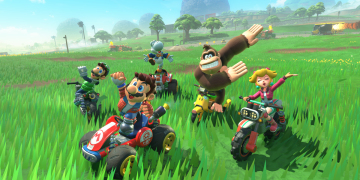Apple is making an unexpected move by integrating support for its visionOS platform directly into the Godot game engine, which is open-source. This decision expands the arsenal of tools available to developers crafting content for Apple’s headset.
Godot stands alongside well-known engines like Unity and Unreal, providing a toolkit for creating real-time games and applications. However, what sets Godot apart is its open-source nature, allowing anyone to use and distribute games without cost. Additionally, developers can contribute improvements and features for the benefit of all users.
Recently, Apple decided to incorporate visionOS support into Godot, enabling developers to produce and share Vision Pro content using the engine. Ricardo Sanchez-Saez, an Apple software engineer, announced that this will involve two main stages. Initially, games created with Godot will be able to function in flat windows on visionOS. The next phase aims to support the development of fully immersive applications.
Due to the open-source nature of this process, incorporating Apple’s contributions into the official Godot version will take time, and no specific deadline has been set for its completion.
Godot’s addition enriches the lineup of tools available for Vision Pro development, which includes Unity, Unreal Engine, and Apple’s own X-code and Reality Composer Pro. Besides supporting visionOS, Godot is versatile enough to build applications for major VR platforms like Quest and PC VR.















































